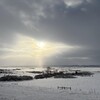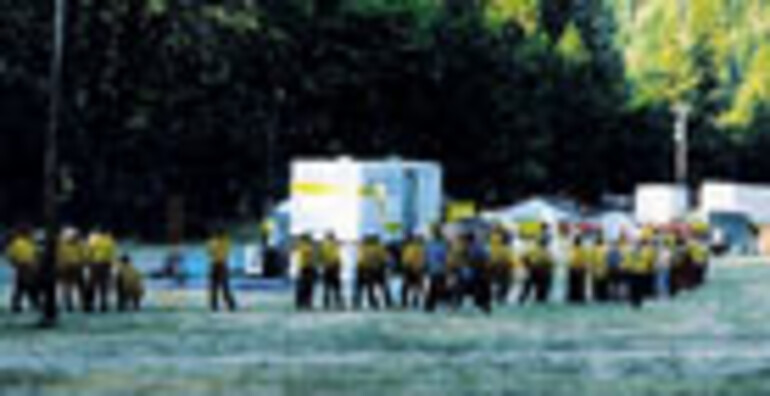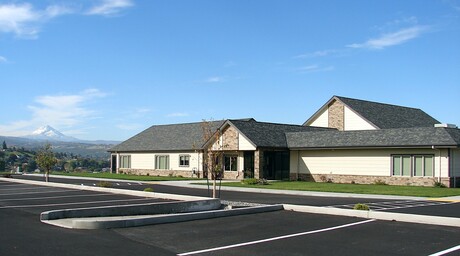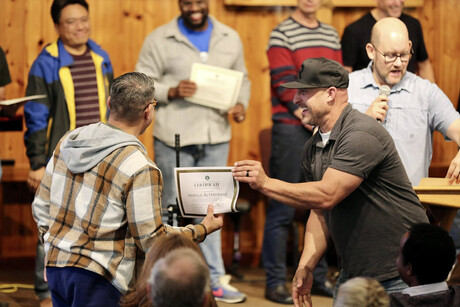When a forest fire starts, it takes many people and days of work to put it out.
To work efficiently, they must set up fire camps—as they did in July on the campus of Milo Adventist Academy.
Crews use these camps for making maps, developing strategies, forecasting weather, maintaining vehicles, allocating equipment, and providing hot meals, showers, rest, and sleep facilities for firefighters serving 12-hour shifts. Such camps are ideally set up in large fields, near the fires.
Camp Umpqua
When forest fires flared in Douglas County in July, Camp Umpqua on the Milo Academy Campus was determined to be an ideal camp location.
Lightning had ignited more than 100 blazes within 20 miles of the Academy, and within 24 hours, the vacant field was transformed by an array of vans, mobile showers, equipment, communications, and dozens of computers. The lodge at the camp was put to use as a command post headquarters, with timekeepers and other specialists.
Crews hired by Oregon Department of Forestry, US Forest Service, and Douglas Fire Protection jointly used the camp to serve more than 1,000 persons.
Milo Is Blessed
Randy Bovee, acting Milo principal, says, “I know that God is not responsible for the lightning that started the fires in Douglas County. But He does work all things together for good. Here at Milo, we have been looking for ways to utilize our campus and surrounding property to get us through a financially tough summer. We have also looked for ways to be of service to our local community. God met both the needs of the state and federal forest service, and our need by bringing us together.”
Milo Academy’s assistance is just one example of how local churches and schools can help in fire-fighting efforts. Last year, one Adventist church provided toiletries and helped launder clothes for hot, tired, soot-covered firefighters. •









